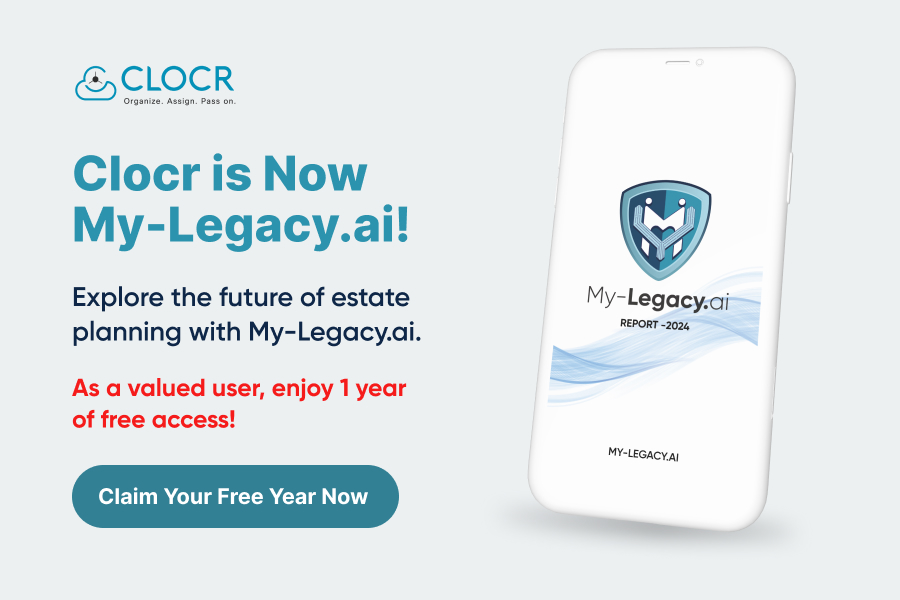People often wonder, what happens to digital accounts after death? It’s a question that a growing number of people have asked as the use of online services has become more prevalent. People use several digital accounts daily, such as email, social media, and online banking. So, what happens to your online life after death? In most cases, the platform will shut the account down, deleting the user’s data will be lost.
However, there are some ways to keep these accounts active after death as digital legacy accounts. One option is to appoint a digital executor who will have access to the account and be able to manage it after the user’s death. Another option is to set up a ‘memorial account’ which can be used to keep the user’s data accessible. It’s essential to consider what will happen to your digital accounts after you die, as they can contain valuable data and memories.
What is a Digital Will?
A digital will is a document that outlines what should happen to your online accounts and data after you die. It can specify which accounts should be closed and who should have access to the data in them. In a nutshell, it dictates what to do with your digital legacy after death. A digital also appoints a digital executor, who will be responsible for managing your accounts after your death.
Why should you think about your digital assets before you pass away?
Your digital assets are a part of your estate, just like your physical assets. It would be best if you considered what you want to happen to them after you die and ensure your wishes are carried out. If you don’t take steps to plan for your digital assets, they may be lost forever. This can be especially difficult if the account contains memories or data you want to preserve.
Create a Will to Access Digital Accounts after Death
It’s important to have a will in place so that your wishes for your digital assets can be fulfilled after you die. Your accounts and data may be lost forever if you don’t have a will. You can use a digital will to appoint a digital executor, who will have the legal authority to manage your accounts after your death.
Importance of Creating a Digital Will
It’s crucial to have a will in place, so your wishes are carried out after you die. If you don’t have a will, your digital assets will be distributed according to the laws of intestate succession. This can mean that your accounts and data are given to people you may not have wanted.
How do I Prepare My Digital Life for Death?
Who has access to digital accounts after death? The process begins with this central question. Here are a few things you can do to prepare your digital life for death.
Appoint a digital executor
Can wills be changed after death? To avoid these ambiguous gray areas, one of the most important things you can do is appoint a digital executor. This person will be responsible for managing your accounts and data after you die. They will need to have access to all of your passwords and login information.
Make a list of your accounts
Make a list of your online accounts, including social media, email, and banking. Include the login information for each account.
Decide what you want to happen to your accounts
Think about what you want to happen to your accounts after you die. Do you want them to be closed, or do you want someone to access the data in them?
Update your will
Ensure your will is updated and includes instructions for your digital assets.
Share your plan with a trusted person
Make sure you share your plan with a trusted person, such as a family member or friend. They should know how to access your accounts and data if something happens to you.
Your accounts will be managed according to your wishes
If you don’t take steps to plan for your digital assets, they may be lost forever. By appointing a digital executor and updating your will, you can ensure that your accounts will be managed according to your wishes.
Your data will be preserved
If you have data that you want to preserve, such as memories or important documents, you can take steps to ensure that it is not lost after your death.
You can avoid family conflict
If you don’t have a plan in place, your digital assets may be distributed according to the laws of intestate succession. This can mean that your accounts and data are given to people who you may not have wanted to have. You can avoid all this by creating a will that outlines explicitly what should happen to your digital assets.
A digital estate plan can give you peace of mind
Knowing that your accounts and data will be taken care of according to your wishes can give you peace of mind. It can also help you to enjoy your digital life without worrying about what will happen to it after you die.
Why is it so crucial to Secure Digital Accounts?
It’s important to have a will in place to take care of your accounts and data after you die. If you don’t have a will, your digital assets may be lost forever. You can use a digital will to appoint a digital executor, who will have the legal authority to manage your accounts after your death. Additionally, ensuring your accounts are secure can help prevent identity theft and protect your loved ones from fraud.
How can I make sure my Digital Assets are Secure?
There are a few things you can do to make sure your digital assets are secure:
Use strong passwords
Ensure to use strong passwords for all of your online accounts. Avoid using easily guessed words or phrases, such as your name or birthdate.
Enable two-factor authentication
Two-factor authentication brings an extra layer of security to your accounts. It requires you to confirm your identity using two factors, such as a password and a code sent to your phone.
Keep your software up to date
Ensure you keep your operating system and software up to date. This will help to protect you from security vulnerabilities.
Back up your data
Consistently and regularly back up your data so that you can recover it if it’s lost or corrupted. You can use online services, such as iCloud, Google Drive, or an external hard drive.
Use a password manager
A password manager can assist you in creating and managing strong passwords for all your accounts.
What should I do if my Digital Assets have been compromised?
If you think your accounts or data have been compromised, you should change your passwords and enable two-factor authentication. You should also contact the customer support of the affected service. If you have been the victim of identity theft, you should report it to the Federal Trade Commission.
How can I Get Started with My Digital Estate Plan?

There are a few things you can do to get started with your digital estate plan:
Inventory your assets
Make a list of all of your online accounts and data. This will help you to determine what needs to be included in your plan.
Choose a digital executor
Appoint someone you trust to manage your accounts and data after your death. Make sure they are familiar with your online life and know how to access your accounts.
Update your will
Make sure your will is up to date and includes instructions for your digital assets. You can use a lawyer to help you create or update your will.
Secure your accounts and data
Make sure your accounts and data are secure by using strong passwords and enabling two-factor authentication. You should regularly back up your data.
Talk to your family
Talk to your family about your digital estate plan. Let them know what you have included in it and why it’s important to you.
Conclusion
Digital assets are a part of your estate, just like your physical assets. You should think about what you want to happen to them after you die and ensure your wishes are carried out. If you don’t take steps to plan for your digital assets, they may be lost forever. This can be especially difficult if the account contains memories or data that you want to preserve.
You can avoid this by taking some simple steps to prepare your digital estate plan. Make an inventory of your assets, choose a digital executor, and update your will. Additionally, you should take steps to secure your accounts and data, such as using strong passwords and enabling two-factor authentication. Finally, talk to your family about your plan so that they know what you have included in it.
Clocr can help you with the process of creating a digital estate plan. Clocr is designed to make it easy for you to inventory your assets and appoint a digital executor. Clocr can also help you to secure your accounts and data and keep your loved ones informed about your plan.





